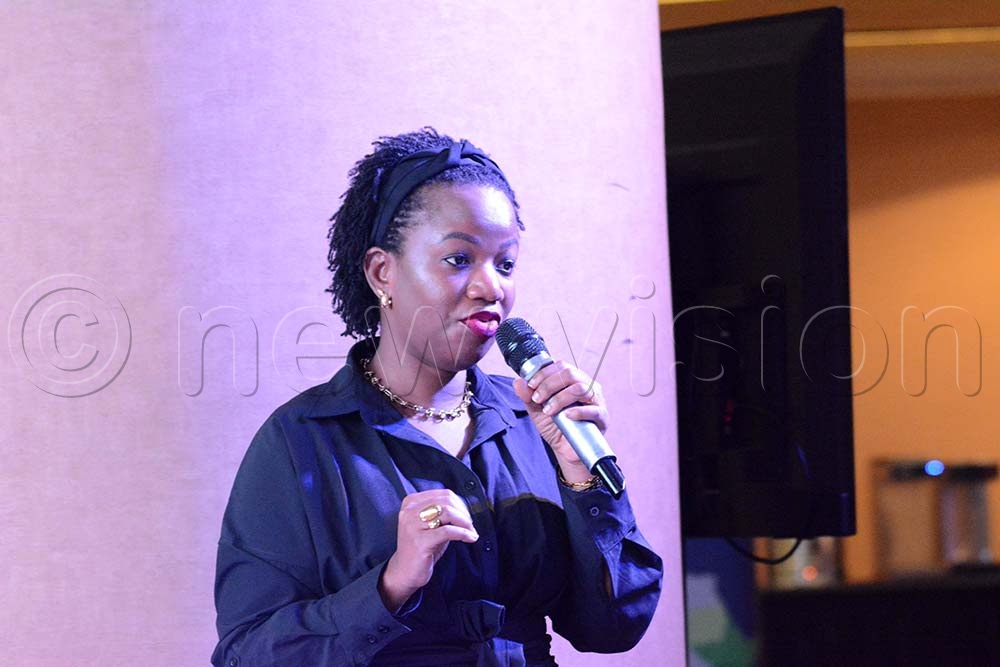Human capital will power uganda–India trade future — Makerere VC Nawangwe
The Economic Policy Research Centre (EPRC) presented figures showing that Uganda imported about $1.3 billion worth of goods from India in 2024, while exporting only $459 million.
(L-R) Anantha Iyer Head of Chancery at High Commission of India, Upendra Singh Negi Second Secretary (Education and MIC) at High Commission of India, Barnabas Nawangwe Vice Chancellor of Makerere University, Upender Singh Rawat High Commissioner of India to Uganda and Sarah Ssewanyana Executive Director of the Economic Policy Research Center during the India-Uganda Bilateral Relation: Opportunities of Trade, Investment and Collaboration workshop at Kabira Country Club on October 2, 2025. (Credit: Mary Kansiime)
KAMPALA - Uganda cannot rebalance its trade relationship with India by exporting more raw commodities alone. Instead, it must invest in human capital, the skills, knowledge and innovation capacity of its people in order to unlock higher-value exports and services.
This was the central message from Makerere University vice chancellor Prof. Barnabas Nawangwue during the Uganda–India policy dialogue held at Kabira Country Club on October 2, 2025.
“Our trade relations are imbalanced, with Uganda exporting primarily commodities and importing high-value manufactured goods and services. The prescription, as we have heard, is value addition, economic diversification, and moving up the global value chain. But if I may ask, who will power this transformation? The answer, unequivocally, is our people,” Nawangwe said.
Uganda’s trade imbalance with India
The Economic Policy Research Centre (EPRC) presented figures showing that Uganda imported about $1.3 billion worth of goods from India in 2024, while exporting only $459 million.
Pharmaceuticals, machinery, vehicles, mineral fuels and petrochemicals dominate imports. Exports, on the other hand, remain concentrated in a few raw products, mainly gold, coffee and legumes.
Although exports briefly surged in 2023 due to a spike in gold shipments worth $635 million, they dropped sharply in 2024, halving to $350 million. Coffee contributed $77 million, while legumes and vegetables added $13 million.
According to EPRC research analyst Aida Nattabi, the trade imbalance highlights how Uganda has not fully leveraged bilateral agreements with India.
“Over the years, Uganda has been signing bilateral agreements with India, especially in the area of trade, but we have not been taking full advantage of those agreements because our exports to India have not been increasing,” she said.
For Nawangwe, the path forward lies not just in diversifying commodities but in building a workforce capable of producing high-value goods and services.
He urged the Government and the private sector to scale up collaboration with Indian universities and industries in science, technology, and innovation.
“We must move beyond traditional collaboration and traditional student exchanges to deep institutional partnerships that are directly aligned with our national development priorities,” he said.
Makerere, he noted, has already collaborated with Indian institutions through the Pan-African e-Network Project and joint ICT initiatives, but more needs to be done.
He proposed a three-pillar framework: Curriculum co-creation in fields such as artificial intelligence, renewable energy and agro-processing; expansion of scholarships and skilling programs for Ugandan youth; and the establishment of joint centres of excellence and innovation hubs.
“The future belongs to innovators,” he said, adding, “Makerere University is ready to host the joint Uganda–India Centre of Excellence in areas such as agro-innovation, digital trade and BPO, and public health and medical technology.”
Aida Nattabi Research Analyst at Economic Policy Research Center during the India-Uganda Bilateral Relation: Opportunities of Trade, Investment and Collaboration workshop at Kabira Country Club on October 2, 2025. (Credit: Mary Kansiime)
Government and business perspectives
Government officials acknowledged the imbalance but emphasised efforts to support industrialisation.
Moses Kaggwa, Director of Economic Affairs at the Ministry of Finance, said Uganda must stop exporting unfinished products.
“Our solution is to move away from processing low-value unfinished products to exporting processed goods,” he said. “We have to add value to our agricultural products that are going to India and not take them there as raw materials.”
Indian investors, represented by Rajesh Kumar, the chairperson of the Indian Business Forum in Uganda, highlighted their commitment to building the partnership.
“In 2022, we organised the Afro-India Summit in Munyonyo, Kampala, where we signed MOUs worth $470 million across different sectors,” Kumar said.
He promised to offer support to Ugandan traders by providing the necessary training they need to improve their trade relations.
“I do not want there to be any lingering barriers between these two countries, so we shall offer training needed to improve our trade relations,” Kumar noted.
Linking investment with skills
Uganda recorded $3 billion in foreign direct investment in 2023, according to government figures, much of it in oil, mining and infrastructure.
Analysts argue that channelling more of this FDI into agroprocessing, ICT, and education could close the trade gap with India.
Nawangwe insisted that such investment must be paired with deliberate human capital development. Citing Makerere’s own initiatives, he said universities are already training students in innovation, but scaling up requires joint research, technology transfer and targeted scholarships.
“If we had not trained those young people and exposed them internationally, we would not be speaking of Kiira Motors today,” he said, referencing Uganda’s homegrown vehicle project that began at Makerere.
The dialogue, organised by EPRC with support from the High Commission of India, brought together policymakers, academics and business leaders to chart a way forward.
While participants agreed that Uganda’s economic ties to India are both substantive and promising, they also admitted that it is far from balanced.
For Nawangwe, the historical relations between Uganda and India must now be built on knowledge, skills and innovation.